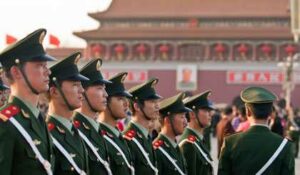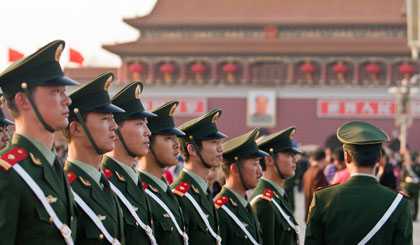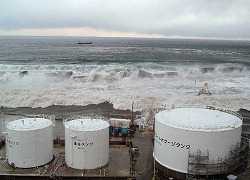Historically, China has always been an important country for Turkey. The problems of the Xinjiang Uyghur Autonomous Region makes Turkish-Chinese relations very sensitive, but it is also necessary to state that Turkey’s intellectuals have very little knowledge of China.
Therefore China for Turks is not so much an ‘interesting but distant’ country as a black box important to Turkey in several distinct ways, but about which we do not really possess deep knowledge.
At a time when the world’s center of gravity is shifting from West to East, the People’s Republic of China (PRC) has topped the list of countries about which people express the most interest.
According to several analysts, this power whose economy is rapidly increasing will become the world’s largest economy in the next quarter of a century.
Along with the growth of its economy, Beijing has come to be mentioned as an important power to consider in military strategy and in the arms race.
China is changing at a dizzying speed, and there is no shortage of people who claim that it is shifting the axis of world politics and may upset the existing balances.
No matter how much China may base its external relations on a ‘world in peace’, the question of whether China might adopt a more aggressive attitude in the coming ten to twenty years has become an extremely popular topic of debate in the West.
And, though they are not quite on this scale, the policies which China follows in Xinjiang, in the Kashmir-Jammu dispute between India and Pakistan, and in Tibet do not seem particularly conciliatory.
Turkey remains obscure to China
Turkey is a natural product of both Western and Eastern civilizations, and it is fairly clear that very few people here have been concerned about the rise of China. Indeed, there has been virtually no interest in the topic.
The thing that has interested Turks most, as a consumer society, is our importation of cheap goods from China. Although in fact, our relations with China began before relations with the West, and continued for centuries as neighboring states. The struggles for territory and dynastic rights between Turks and Chinese lasted for many years and led to the construction of the Great Wall of China, the one man-made structure visible from space.
This special relationship derived from history continues even today, even if it is not as intense as in the past. The top item on our agenda at contact points is the situation of our kinsmen in Xinjiang.
Stick a pin into Xinjiang and it produces an immediate reaction on the streets of Istanbul and Ankara, and large crowds gather at either the Chinese Consulate or the Chinese Embassy.
So whether or not Turkey likes it, it is obliged to concern itself with events in China. In just the same way, the Bosnian tragedy drew Ankara’s attention to the Balkans and the Chechen problem directed it to the Caucasus, and the Arab spring to the Middle East , so a similar development may be anticipated in the years ahead of us in Turkish-Chinese relations.
Therefore China for Turks is not so much an ‘interesting but distant’ country as a black box important to Turkey in several distinct ways, but about which we do not really possess deep knowledge.
China’s rapidly growing economy has brought with it a culture of spending, led by the newly-emerging middle classes. A class structure based on a culture of spending does not intend to be satisfied with limitations in the sphere of freedom.
The awakening giant may hold that ‘the individual is for the society’, but this approach is now being given a serious test through the rapid growth of the economy’s influence on society.
Oppositional political currents
It is obvious that oppositional political currents inside China will not be resolved through the shortcut of putting them down with tanks, as happened in Tiananmen Square in 1989.
If we examine the question of whether or not China will follow a second Tiananmen Square incident to its logical conclusion, we are confronted by an even bigger problem.
What will China’s contribution be as far as values are concerned to the global order? We now know the international balance in the centers of the West which came into being in 1648 with the Westphalia system, and the systemic parameters of the values upon which it was based.
It is generally possible to predict the approximate opinions and means of the countries of Europe, which the European Union and the United States will use to reach a settlement when new problems emerge in the world. T However it is hard to grasp how China, which now has more sway over these problems in the world system, will react. For example regarding the Arab spring, China has stayed silent or not offered any response beyond its familiar subdued policies. Regardless, it is more or less impossible to guess what China will think about it tomorrow.
So there is great uncertainty about how opinions will be produced and what values will be defended in an international system in which China is one of the principal decision makers.
For example, how will China perform on matters such as the expansion of democracy, human rights, the supremacy of law, and freedom of expression? The performance given on these matters so far by China does not offer us a very praiseworthy score.
Nonetheless, the future of China concerns Turkey considerably just as it does the whole world. The picture to date is not very encouraging, but Turkey’s intellectuals are strikingly lazy when it comes to keeping up with China’s present and its past. When meetings are held to discuss China, genuine experts are in short supply. It is not just think-tanks and universities but everyone concerned with the region, starting with companies that do business with China.
They should step up the speed of efforts to study it and ensure that it continues on a stable basis.
The first half of the twenty-first century will see more debates on China’s growing influence on world affairs. Shifts in power on a global scale clearly concern regional actors like Turkey.
Because like all medium-sized powers, Turkey has to study the strategies of the key actors in the global equation in order to be able to have a secure place in the system.
China is a global power which will be costly to neglect. So without delay, Turkey should abandon its habit of regarding China as simply a player in the area of consumer products, and must start generating some expertise on the world’s awakening giant.
(Source: The Journal of Turkish Weekly)







